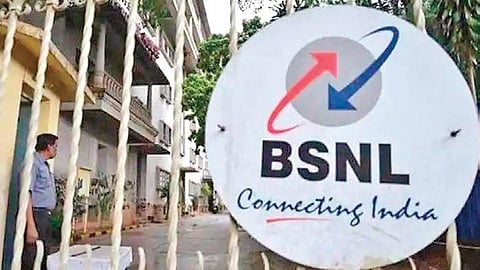

NEW DELHI: The BSNL Employees Union (BSNLEU) has strongly opposed the proposed second phase of the voluntary retirement scheme (VRS) introduced by Bharat Sanchar Nigam Limited (BSNL) management.
In a letter addressed to BSNL Chairman and Managing Director (CMD) Robert J. Ravi, the union criticised the company’s current difficulties, attributing them to flawed government policies and managerial inefficiencies.
The union accused both the management and the government of scapegoating the company’s workforce for its financial troubles rather than addressing these fundamental issues.
Citing the example of Mahanagar Telephone Nigam Limited (MTNL), the union noted that similar VRS schemes had been implemented three times but failed to improve the company’s financial health. MTNL is now on the verge of closure.
“The inability of the Management to substantially increase BSNL's revenue generation is the real reason. We strongly urge the Management to reconsider and withdraw its decision to implement a second VRS. Instead, we suggest a thorough self-introspection of flawed policies and managerial inefficiencies, as these are the true barriers to BSNL's revival and growth,” reads the letter.
This marks the second instance, after 2020, when the government has implemented a VRS for BSNL employees. In 2020, around 80,000 employees opted for the scheme.
The union argued that there is no rationale behind the Board of Directors’ decision to introduce another VRS. As of March 2024, BSNL employs only 29,750 executives and 26,435 non-executives.
The union also pointed to BSNL’s lack of 4G and 5G services as a significant factor in the company’s customer losses to private telecom operators. Despite the implementation of a revival package in 2019 and two additional packages in 2022 and 2023, BSNL has failed to substantially increase its revenue.
The union highlighted that while Jio and Airtel have already completed their pan-India 5G rollout, BSNL continues to rely solely on its 2G and 3G services.
Additionally, BSNL has faced significant delays in procuring 4G equipment, with its primary vendor, TCS, failing to meet deadlines.
“When private operators like Reliance Jio, Airtel and Vodafone Idea have the freedom to procure their 4G and 5G equipment from reputed international vendors like Nokia, Ericsson and Samsung, why should BSNL alone be restricted to procure its mobile equipment from Indian vendors? This is nothing but denial of level playing field to BSNL,” reads the letter.
The union also criticised the outsourcing of landline and broadband maintenance after the 2020 VRS, claiming it led to a deterioration in service quality.
As a result, BSNL’s landline connections have nearly disappeared, with Jio now emerging as the largest landline service provider, using optic fibre technology.
According to the union, BSNL’s FTTH (Fibre-to-the-Home) service, once considered the best in the industry, has also seen a sharp decline due to poor service quality. Customers have raised complaints about the maintenance of their FTTH connections, resulting in widespread disconnections.
The BSNLEU urged BSNL management to reconsider the voluntary retirement scheme and focus on resolving the root causes of the company’s struggles.